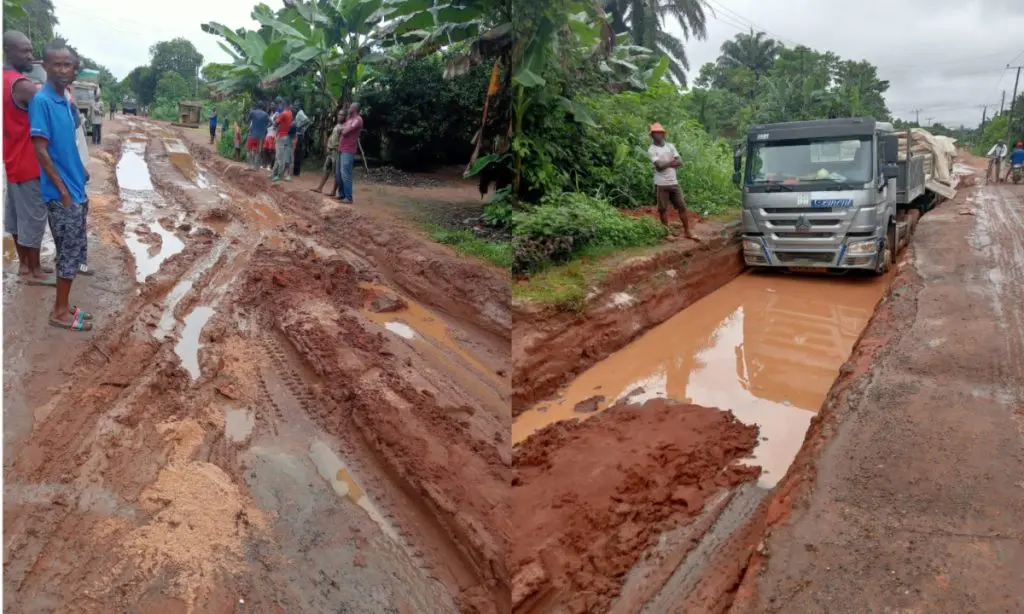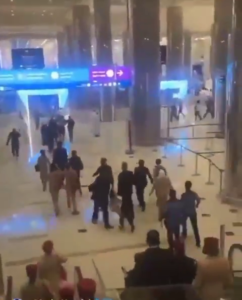Communities in Ngor Okpala Local Government Area, Imo State, are in distress over the deplorable condition of their roads. These communities have been enduring years of neglect, leading to severe economic, social, and educational challenges. The bad roads are not just an inconvenience; they are creating serious obstacles to daily life, limiting access to markets, schools, and healthcare facilities. The worsening condition of the roads has prompted community leaders and organizations to speak out, demanding immediate government intervention.
Ngor Okpala is one of the largest local government areas in Imo State, yet its road infrastructure is among the worst. According to residents, successive administrations have failed to address the problem. Many of the roads are riddled with potholes, while others have been overtaken by erosion and flooding. The situation has only grown worse over time, and there is little hope of repair in sight.
Dr. Ibe Nwoko, a leader of the Ngor Okpala Renaissance League, a socio-cultural organization in the area, expressed the deep frustration of the people. He shared an account of how he and other members of the organization recently went to visit the Chairman of the Ngor Okpala Council of Traditional Rulers. However, their journey was interrupted when their vehicle got stuck in a large pool of water caused by the terrible road conditions. The group had no choice but to remove their shoes and wade through the water.
“We had to pull off our shoes and stockings to wade through the waters. There is no motorable road to the local government headquarters at Umuneke,” Nwoko said.
Dr. Nwoko listed several major roads in Ngor Okpala that have become impassable, effectively cutting off many communities from each other. These include:
Ihette junction to Umuneke Road
Ulakwo – Nguru – Umuneke – Orisheze Road
Ulakwo – Nguru – Ngor – Nkwala Eziama Road
Umuohie Ukwu – Obokwe – Ogbeke Road
Umuohie Ukwu – Ohekelem – Ogbor Road
Umudim – Okporoamuma – Nkwoala Road
Umuchie – Obokwe – Alulu Road
Eziama – Ntu – Amala Road
Each of these roads plays a critical role in the daily lives of the people, providing access to neighboring communities, schools, markets, and government offices. With these roads in a state of disrepair, residents are cut off from essential services. Travel has become a nightmare for anyone needing to conduct business or access healthcare. School children are also affected, as transportation to schools becomes difficult and, in some cases, impossible.
“All the roads are death traps,” Nwoko lamented. “Our people have been managing without good hospitals and even good schools, but this road thing is a serious headache to us.”
The bad road conditions have had a profound effect on the local economy. Farmers and traders, who depend on the roads to transport goods to local markets and urban centers, are finding it increasingly difficult to get their products to buyers. This has led to loss of income, higher transportation costs, and reduced access to essential goods. Ngor Okpala, being a largely agrarian community, relies heavily on farming, but with the roads in such poor condition, many farmers are unable to maximize their earnings.
In addition to the economic impact, education in Ngor Okpala has suffered greatly. Many students face daily struggles getting to school, as transport costs rise and travel times increase due to bad roads. Some children are forced to walk long distances to their schools, risking their safety and health. The condition of the roads has contributed to lower school attendance, as families cannot afford the increased transportation costs or the risks associated with traveling on dangerous roads.
Dr. Nwoko and other leaders of Ngor Okpala are frustrated not only by the current state of the roads but by the fact that this issue has been ongoing for decades. Since 1999, the area has had several elected representatives at both the state and federal levels, yet no significant road infrastructure has been put in place. The people feel abandoned by their government, both past and present.
“We have had a series of senators and other legislators who represented the area both at the federal and the state levels. But despite that, no meaningful road infrastructure has been constructed in Ngor Okpala,” Nwoko said.
The community is particularly disappointed in the current state government under Governor Hope Uzodimma. Many in Ngor Okpala had high hopes that his administration would finally address the infrastructure problems, given that he and his party enjoyed strong support from the local government area. However, the residents feel let down, as there has been little to no improvement in road construction or repair.
Faced with the ongoing neglect from the state government, Dr. Nwoko and the Ngor Okpala Renaissance League are now calling on the Federal Government to intervene. They believe that Ngor Okpala should be declared a disaster area due to the extreme condition of the roads and the resulting negative impact on the local population.
“We call on the Federal government to come to our aid because the state government has failed us. Ngor Okpala should be declared a disaster area,” Nwoko stated.
The people of Ngor Okpala are not asking for much—just functional roads that will allow them to go about their daily lives without fear of accidents, delays, or financial loss. They believe that with the right attention and investment, their road network can be rehabilitated, improving the economy, education, and overall quality of life for the community.
Ngor Okpala’s poor road conditions are more than just an inconvenience; they are a matter of survival for many residents. The roads have become dangerous and nearly unusable, causing severe economic and social hardships for the people. Despite decades of promises, no government has delivered the infrastructure improvements that the community desperately needs. Now, the people of Ngor Okpala are pleading for the Federal Government to step in and provide the support they require to rebuild their roads and their lives. Until then, they continue to endure the daily challenges that come with living in an area cut off by neglect and poor governance.







